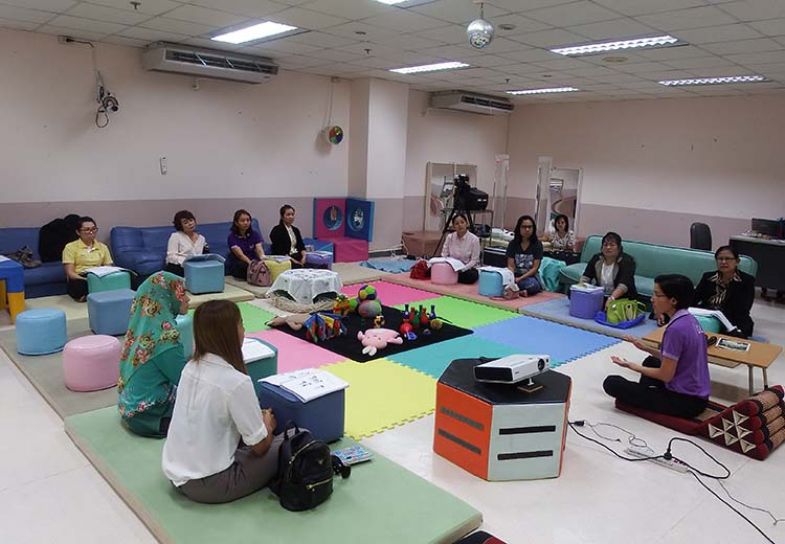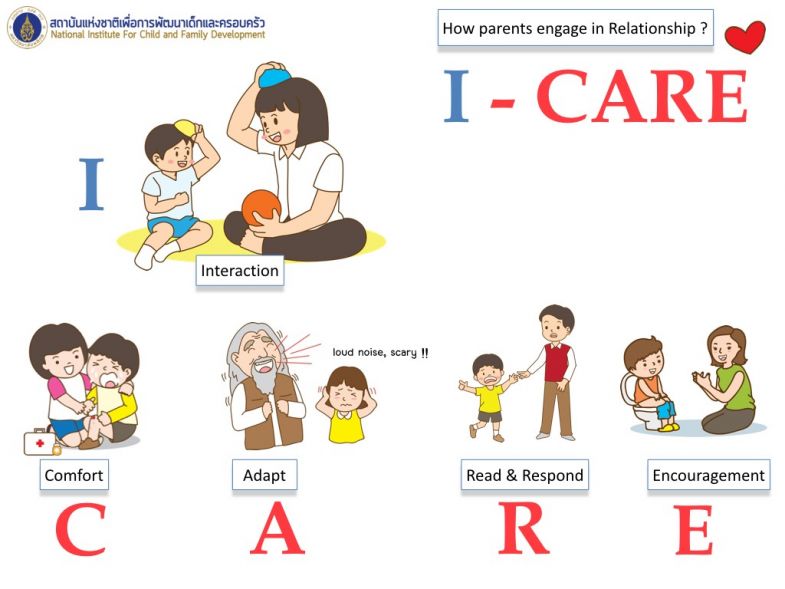
Autism Spectrum Disorder (ASD) is a neurological condition which normally becomes apparent in the first 3 years of life. ASD can affect social development in children, with children on the Autistic spectrum often showing little interest in other children, and having problems with communication and recognizing facial expressions and emotions. Although current understandings of neurodiversity accept that ASD is not a problem to be ‘solved’, it is important to provide support to individuals with ASD and their families, to promote and improve their quality of life.
Providing this type of support is one of the key aims of the research, education and services of the National Institute for Child and Family Development (NICFD), Mahidol University. Whilst individualized work with children with ASD and their families can be of great benefit to those children and families, it can also help to improve support networks within communities, and form the foundation for effective and sensitive national policy.
For many children with ASD, the aim of doctors and therapists is to create and implement frameworks to teach the skills which they need, particularly around socialization and communication. In young children this would generally be focused around games and activities which help the child to understand what they need to do in a given situation. Often children can be capable of learning the appropriate response to the situation, however, it is rare that they will be able to translate this learning into real world scenarios.

Asst Prof. Keawta Nopmaneejumruslers, Deputy Director of the Clinical Services and Early Childhood Development Center, NICFD, has been researching the clinical implementation of Developmental, Individual Differences, and Relationship-based (DIR) Floortime; a modern treatment model for children with ASD, Downs Syndrome, Learning Difficulties, and other developmental delays. This model is built around the interactions between the children and their parents, and is individualized for the needs of each child.
The NICFD team begin by teaching the parents about DIR Floortime, and how it has been adopted in Thailand. The ‘I-CARE’ framework shows parents how to engage with their children through: Interaction; Comfort and Adapt, to make sure that activities are not distressing their child; Read & Respond, to assess their child’s reaction; and Encouragement, to support the development of learning.
Following the initial training session for parents; the parents and children come to NICFD’s clinic once a month for targeted work, and then the parents practice DIR Floortime with their child at home for 14 hours each week through Floortime, Physical Activities, Problem Solving Interaction, and Peer Play. NICFD then monitor the child’s development in terms of emotions, language, play and other areas. Among the test group of 50 children with ASD of varying levels of severity, it was found that, following the DIR Floortime intervention, 25% were able to progress sufficiently to re-enter school. Most importantly, the work has helped to strengthen the relationships between parents and children in difficult circumstances.
Research Institutes of Thailand have now provided funding for distributing the knowledge gained through this research into communities around Thailand under the name Thai Home-based Autism Intervention (THAI) Model Project. The project has now been launched in 5 provinces around Thailand.









